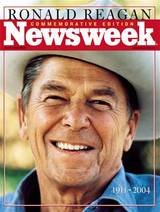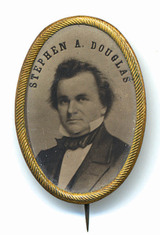Watching the Republicans "debate" last night answered one of the great mysteries of all time, namely how it is that Herbert Hoover won the 1932 Republican Presidential nomination.
Usually, when a President is unpopular, their assumptions are directly challenged within their own party. Think about Pat Buchanan’s revolt in 1992, the host of candidates who ran against George H.W. Bush in 1988. Think about Ted Kennedy’s challenge to Carter in 1980, or Ronald Reagan’s challenge to Ford in 1976.
But there is an exception to this rule. When a true crisis emerges, when a generational thesis is overthrown, the party of that thesis does not take the hint. Instead they either stand by their thesis or they try to extend it, take it to its extreme.
That’s what we saw yesterday. While George W. Bush was hardly mentioned, the policy assumptions underlying his Presidency were never questioned. Instead they were called Reaganism, and every candidate (save perhaps Ron Paul) sought to embrace or extend those assumptions.
This is proof we’re entering a transforming election cycle.
Think about the 1968 Democratic campaign. You had Hubert Humphrey, who
endorsed the FDR Thesis which the events of the 1960s had made
irrelevant. He was matched first against Eugene McCarthy, then Robert
Kennedy, both of whom sought to extend the liberal thesis, who embraced
the hippies. History shows that was political suicide, but there they
were. And there was the press, looking not at the new thesis but at the
old — the media was living within the thesis right alongside the
candidates and the voters.
The same thing happened in 1932. In that year denial was not just a
river in Egypt. Herbert Hoover kept saying we’d turned the corner on
the Depression, and with patience everything would be all right. But
millions were living in shantytowns dubbed "Hoovervilles" and
everything was not all right. By the end of that year 32% of American
workers would be unemployed, at a time when only one member of each
family worked — 32% of American families had no real income.
An accident of the Electoral College kept Wall Street in power through
the 1890s. Because Grover Cleveland won the popular vote (but lost the
electoral vote) in 1888, and so won his second term in 1892, he was
stuck in the White House when everything came crashing down in 1893.
Democrats split rather than Republicans, and William McKinley won the
1896 election. But the forces unleashed by that panic would not be
contained. McKinley was in fact far more progressive than anyone believed (then or later).
And of course, in 1860,
what were Democrats thinking when they nominated Stephen A. Douglas,
the embodiment of the Jackson Thesis? The party split into three parts,
the party’s leaders knew this was likely to happen, yet they went over
the falls anyway — and became a minority party for the next two
generations.
That’s what we saw last night. It wasn’t just the 10 candidates on the
stage, who should have just held hands with moderator
Chris Matthews, thrown up some smoke, darkened the lights, and had a
real seance for Ronald Reagan’s ghost. It was all the Republicans
watching on TV, all the Republicans in the blogosphere, who refuse to
accept that the Nixon Thesis of Conflict — the assumptions of their
political lives — have no relevance to the problems of 2007, that they’re broken beyond repair, that they must be replaced for the party to live.
I can only conclude that this is human nature. You live your whole life
based on certain beliefs. And when those beliefs cease to be relevant,
but you’re still tied to them, you just wish harder.














It seems to me that the central premise of these Republican candidates is that you don’t have to win the popular election to win the presidency. They may be on to something. 2006 results in RI and elsewhere showed that even a progressive liberal Republican has a hard time beating a Democrat in this political climate. Meanwhile, if they break to much from the extremists who are strong in the Republican party they run the very real risk not even wining the primary. So, if you can’t the popular vote unless you’re a Democrat and you might not even get nominated unless you are a “Bush Republican” what course do you really have? It seems like you pretty much to have the balls to try and force mainstream Republicans to take their party back from the extremists or you pull a McCain an pretend to be Bushie in the hopes that the Republican machine can some how pull out an electoral college win for you like Bush in 2000.
It seems to me that the central premise of these Republican candidates is that you don’t have to win the popular election to win the presidency. They may be on to something. 2006 results in RI and elsewhere showed that even a progressive liberal Republican has a hard time beating a Democrat in this political climate. Meanwhile, if they break to much from the extremists who are strong in the Republican party they run the very real risk not even wining the primary. So, if you can’t the popular vote unless you’re a Democrat and you might not even get nominated unless you are a “Bush Republican” what course do you really have? It seems like you pretty much to have the balls to try and force mainstream Republicans to take their party back from the extremists or you pull a McCain an pretend to be Bushie in the hopes that the Republican machine can some how pull out an electoral college win for you like Bush in 2000.